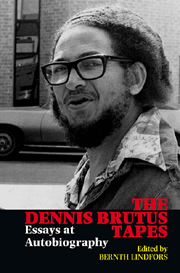‘Somehow Tenderness Survives’
from POETRY
Published online by Cambridge University Press: 05 April 2013
Summary
[The interview that follows was tape recorded in London over a period of two days in August 1970. All questions and non-literary statements have been edited out in the interest of providing a consecutive autobiographical narrative on a single theme.]
I think the earliest literary influence on me was my mother, who not only recited nursery rhymes to me as a child, but had herself a love for poetry. She was a schoolteacher who had taught, as teachers do in South Africa, the whole range of the junior curriculum, and had been educated by English missionaries who created a taste for her in literature. I suspect their own education was not terribly good in terms of literature – the things they encouraged her to like were things which I grew out of in time. As a student teacher she learnt and later taught things like “Under the spreading chestnut tree/The village blacksmith sat” [sic] and Colley Cibber's appalling poem “The Blind Boy” and Wordsworth's “Lucy Gray,” which I think is a very bad introduction to Wordsworth. It is a poem of considerable sentimentality. At any rate, this is “memorable” poetry – easy to remember, with all the features which poetry normally has in a rather exaggerated form, so that one knew rhyme and rhythm and imagery. And there was a Longfellow, about the wreck of the Hesperus: “It was the schooner Hesperus/That sailed the wintry sea…” and things like that. Fortunately also some good things – I think Wordsworth's “Daffodils” is one; Thomas Gray's “Elegy in a Country Churchyard,” which in some ways is regarded as a touchstone of English poetry.
- Type
- Chapter
- Information
- The Dennis Brutus TapesEssays at Autobiography, pp. 143 - 156Publisher: Boydell & BrewerPrint publication year: 2011



